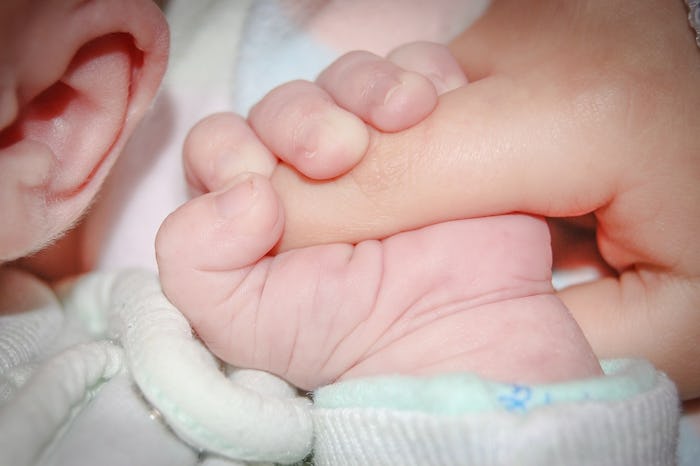Life
Does Co-Sleeping Protect Your Kid From Illness? Many Experts Argue It Does
Many experts warn against sleeping in the same bed with infants, or co-sleeping, because of fears that the adult could roll over on top of, or suffocate, the baby. But parents across the county and some experts would beg to differ, saying the benefits of co-sleeping are numerous and important. But does co-sleeping protect your kid from illness? Some say absolutely.
It's worth pointing out the American Academy of Pediatrics does not recommend co-sleeping, and calls it the "greatest risk factor for sleep related infant deaths. " The AAP released a study in 2014 that found that, of all sleep-related deaths of children between 2004-2012, 69 percent were "bed sharing" at the time they died. It's worth noting that bed sharing is just one type of co-sleeping, and not all co-sleeping is bed sharing.
But there are also many mothers and cultures around the world for whom co-sleeping is the norm, according to a report from the Los Angeles Times. Co-sleeping is common practice is Japan, Africa, and across Latin America. And compared to a country like Japan, the United States has twice the infant mortality rate, the Times reported.
Not to mention co-sleeping is a far more convenient way to breastfeed and helps baby and mom get much needed sleep. A Mother-Baby Sleep expert Dr. James McKenna from the University of Notre Dame said he's documented a synchronization between mother and baby when they sleep together, which he said is beneficial for both. McKenna has dubbed co-sleeping while breast feeding, "breastsleeping," according to the Los Angeles Times and considers it "optimal."
McKenna pointed out there are many ways to co-sleep with your baby, from bed sharing to putting your baby in a bassinet within arm's reach, and that safety is key. He added that what's important, and what produces actual physiological benefit for both mother and child, is the close proximity that allows each to react to the other.
"Bed sharing may be safe or dangerous, based on specifically how it's done," McKenna said in the 2013 interview. But for breastfeeding mothers, bed sharing, he adds, could be the best choice.
Take a look at the whole interview; it's pretty fascinating.
Besides the obvious benefit to peaceful, restful sleep to both mother and infant, Dr. Sears cited research that shows co-sleeping keeps a baby's temperature and heart rhythms more stable, and that they have fewer long pauses in their breathing, which protects them from Sudden Infant Death Syndrome. Dr. Sears also said that research shows that when a parent breaths out carbon dioxide on the baby it stimulates their breathing.
No matter which way you choose to sleep with your baby, the experts all seem to agree on one thing: you have to find out what works best for you and your family.
